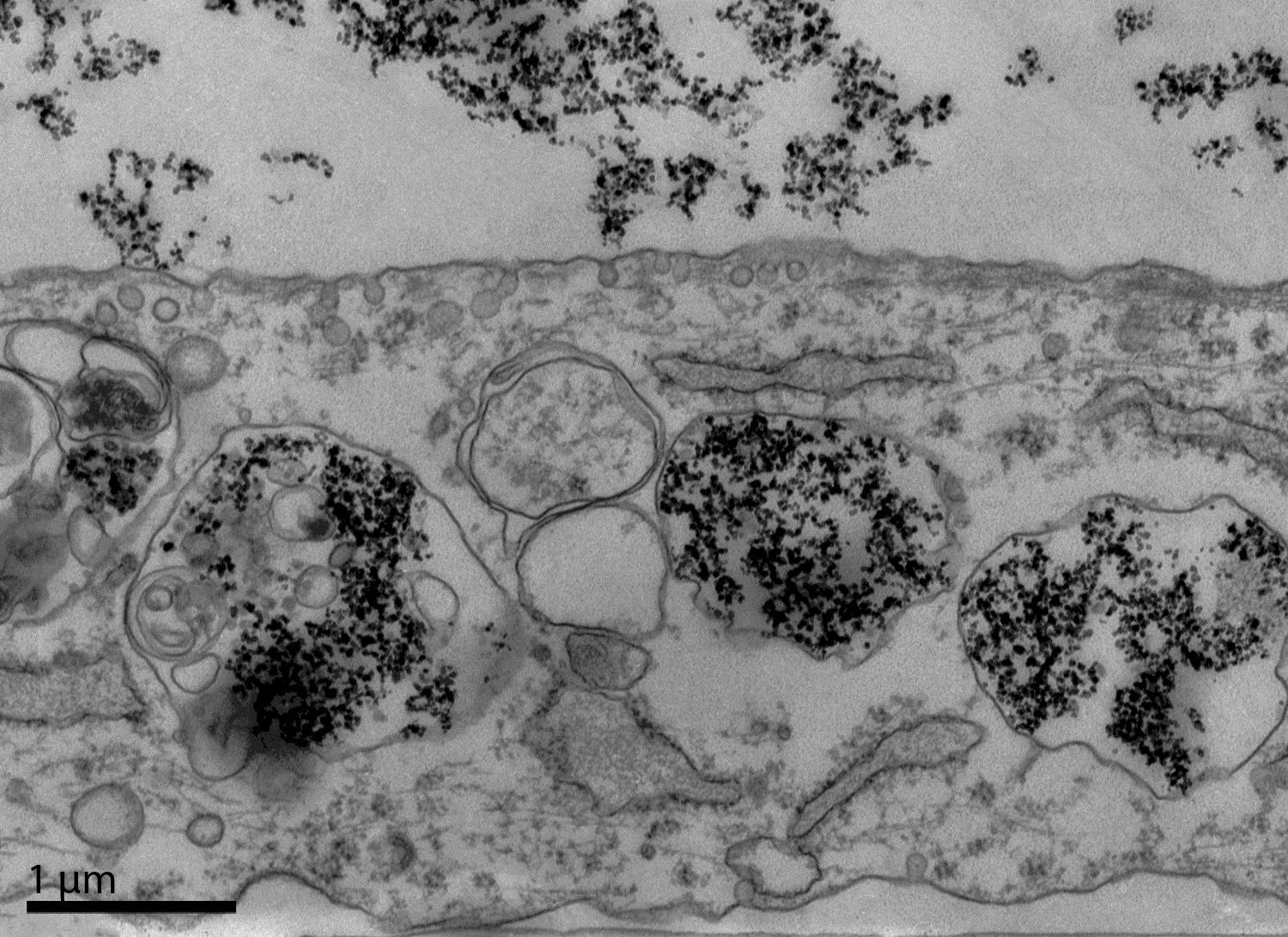Nanoparticles (NPs) research is currently an area of intense scientific interest due to numerous possibilities and 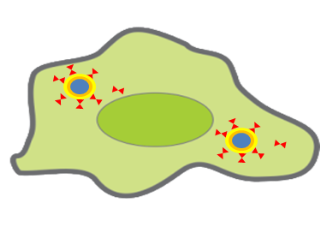 applications these particles offer. Due to their small size (1-100 nm), cells can easily endocytose them, which makes them suitable carriers for drugs or nucleic acids and various other applications for detection or targeting. Several NP-applications, like drug delivery, tumour targeting, hyperthermia and MRI contrast enhancers are already in clinical use, but various questions concerning especially stability, cytotoxicity and immunotoxicity of NPs are still open.
applications these particles offer. Due to their small size (1-100 nm), cells can easily endocytose them, which makes them suitable carriers for drugs or nucleic acids and various other applications for detection or targeting. Several NP-applications, like drug delivery, tumour targeting, hyperthermia and MRI contrast enhancers are already in clinical use, but various questions concerning especially stability, cytotoxicity and immunotoxicity of NPs are still open.
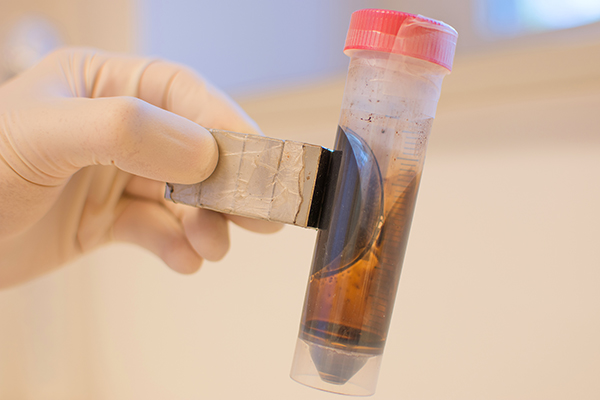 Our group focuses on i) development and in vitro characterization of highly stable novel types of magnetic NPs, suitable for several different biomedical applications, and ii) evaluation of cytotoxicity and in vitro immunotoxicity of environmentally and biotechnologically relevant NPs.
Our group focuses on i) development and in vitro characterization of highly stable novel types of magnetic NPs, suitable for several different biomedical applications, and ii) evaluation of cytotoxicity and in vitro immunotoxicity of environmentally and biotechnologically relevant NPs.
We analyse the interactions between NPs and different cell types or cell models to determine internalization pathways and intracellular fate, quantify the nanoparticle uptake as well 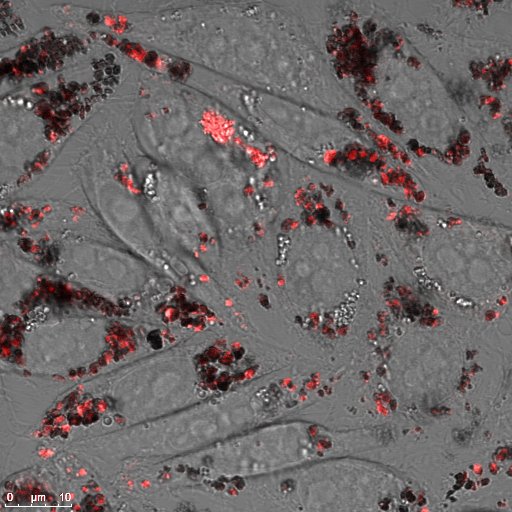 as analyse the mechanisms of possible cytotoxicity. Current research is focused on understanding nanoparticle-protein interaction (i.e. protein corona) and on studying the effect that nanoparticles have on innate immune system in vitro.
as analyse the mechanisms of possible cytotoxicity. Current research is focused on understanding nanoparticle-protein interaction (i.e. protein corona) and on studying the effect that nanoparticles have on innate immune system in vitro.
We have expertise in:
- synthesis (magnetic and gold nanoparticles),
- characterization (size, zeta potential, TEM, SEM, surface chemistry, stability, presence of impurities),
- functionalization (fluorescent labeling),
- determination of protein corona composition,
- cytotoxicity evaluation on cell cultures or cell models and,
- in vitro immunotoxicity evaluation (cytokine detection, immune system related cell signaling) of NPs.
Our developed products are applicable for: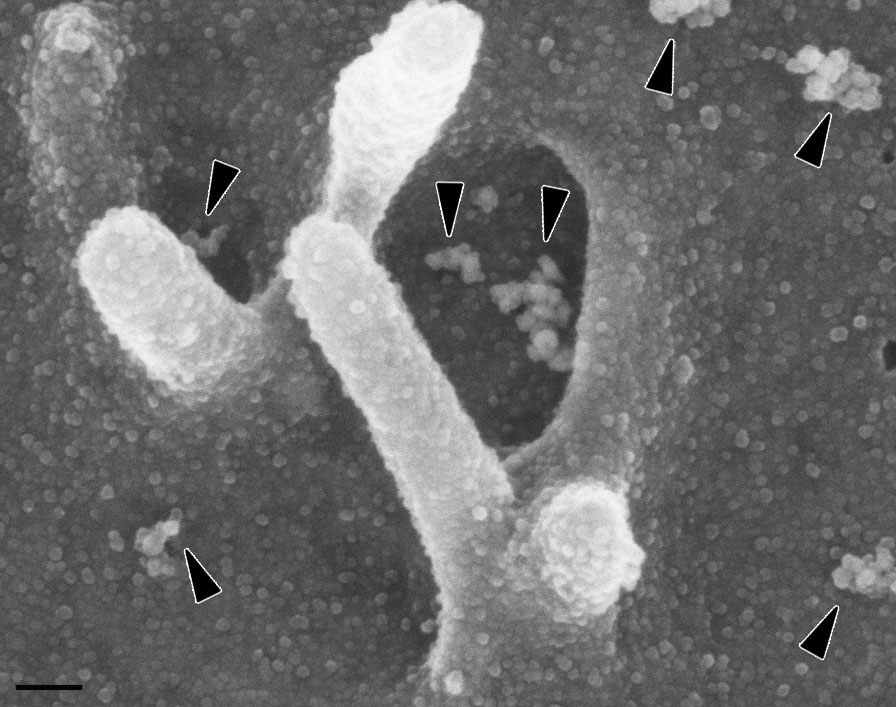
- labeling of cells,
- visualization of cells,
- and drug delivery.
